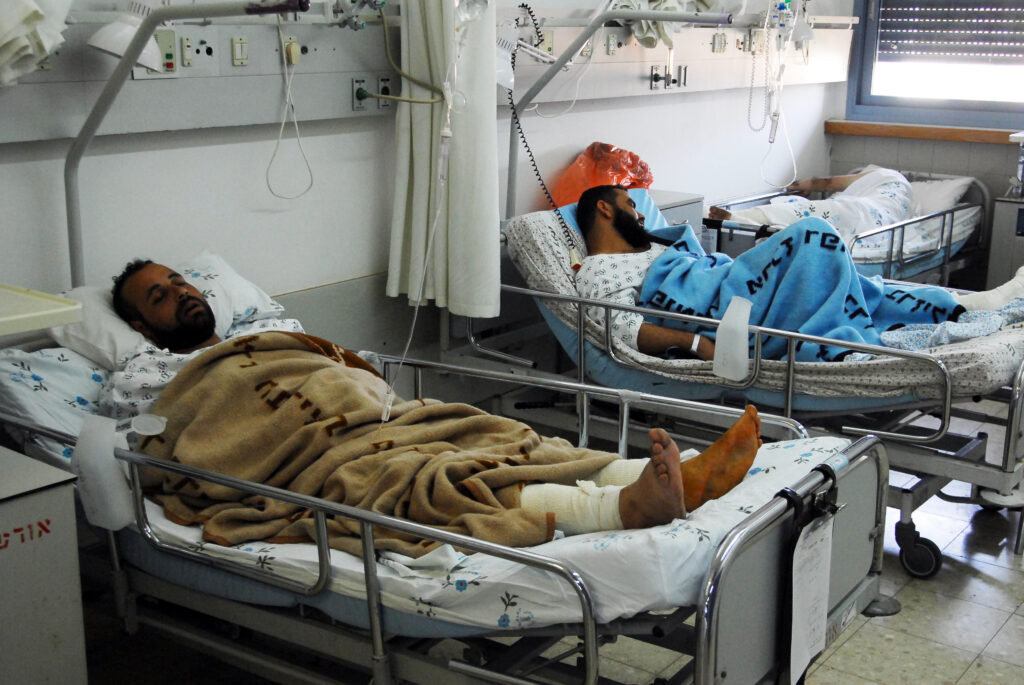IN THE MEDIA
Keep conflict out of hospital wards
February 18, 2025 | Ahron Shapiro

The West Australian – 18 February 2025
As an identifiable member of the Jewish community, an Israeli citizen and Australian permanent resident who has been treated for serious illness in hospitals here, the despicable actions of two nurses in Sydney last week hit home.
What if fate had placed the pair — who told a stranger in a random video chat that they had deliberately killed patients, based only on Israeli identity, and would readily kill others like them again if given the chance — in my ward?
Besides triggering a criminal investigation into their past conduct and stated future intent, no health care facility can risk allowing workers to treat patients after making such statements.
How ironic, then, that the murderous hatred expressed in the video towards Israelis stands in stark contrast to the situation inside Israel itself, where hospitals remain unsinkable islands of coexistence even amid the roughest seas of political tension.
Especially in areas of diverse populations — like Jerusalem, Haifa and Beersheba — more often than not, Jews and Arabs share hospital rooms. In these instances, politics as a rule are left outside. Exceptions are relatively rare.
So it was during my late mother’s last months in Jerusalem.
During visiting hours as we sat by our respective elders’ bedsides, we would greet each other with genuine warmth and empathy and bless one another’s family member with a full recovery.
Leaving the ward, I’d pass religious Jewish and Muslim nurses with their hair covered, secular Jewish and Arab nurses, alongside social workers and other medical workers of all backgrounds.
A recent study shows that Israeli Arabs are actually over-represented in the Israeli health care sector, with Arabs comprising comprising 25 per cent of Israeli doctors, 27 per cent of nurses and dentists , and no less than 49 per cent of pharmacists. Arabs make up 21 per cent of Israeli citizens.
The patients I saw in hospital were also a microcosm of Israeli society: ultra-Orthodox men and women identifiable by their respective head coverings even in their sickbed, surrounded by visitors in Hassidic garb; an Arab patient watched over by many members of his family who kept vigil in the visitors lounge around the clock in shifts; Christians, secular people, modern orthodox Jews, as well as Druze, Ethiopian Jews and other minorities.
During the Syrian civil war last decade, many victims — some of whom I’ve personally met and talked with — were treated in Israeli hospitals, purely out of humanitarian interest and without payment.
Moreover, before and even on October 7, 2023, many Gazans received world-class medical treatment in Israeli hospitals.
This is the face of Israel that you don’t often hear about.
And who has heard about Awad Darawshe,the 23-year-old paramedic who on October 7 bravely treated the injured at the Nova festival site. His cousin Mohammad, told the Associated Press that Awad refused to stop treating patients even as terrorists closed in.
‘No, I’m not leaving. I speak Arabic, I think I can manage,’” were his last known words before being killed by Hamas.
“We are very proud of his actions,” Mohammad Darawshe said of his murdered cousin Awad. “This is what we would expect from him and what we expect from everyone in our family — to be human, to stay human and to die human.”
Remarkable, isn’t it, that the basic common decency that Israelis give one another that draws a thick red line at bringing conflicts into the treatment wards, apparently can no longer be relied upon here in Australia, oceans away from these conflicts.
Instead, week after week, Australian health care workers — many in uniform — have attended anti-Israel rallies, chanting the infamous slogan “from the river to the sea,” which Prime Minister Anthony Albanese himself has said is anti-Semitic.
First-hand accounts in the Jewish community say those who have appealed to Australia’s healthcare regulatory bodies to curb such political activity in uniform have gotten nowhere and even turned the whistleblowers into targets. It is out of this context that the once unthinkable hatred exhibited by the two nurses from Bankstown Hospital emerged.
Elderly Jews in my community tell me at times like these they feel we are no longer the Australia they knew growing up. Still, I’d like to believe that the majority of Australian society, including in the healthcare sector, still places the quintessential Australian value of “mateship” over the trending dark forces of hate.
As we seek to heal the breakdown in trust that the Bankstown nurse scandal has placed on our healthcare system, we could do worse than to look to how Israeli health care navigates its own multicultural challenges.
While straining under wartime conditions, and never claiming to be perfect, there is no denying how this system has persevered and continued to deliver excellent results, without dragging in political or communal tensions.
It remains a daily example of coexistence and mutual respect that provides hope for a better future in the Middle East.
Ahron Shapiro is a senior policy analyst at the Australia/Israel & Jewish Affairs Council (AIJAC).
Tags: Antisemitism, Australia





